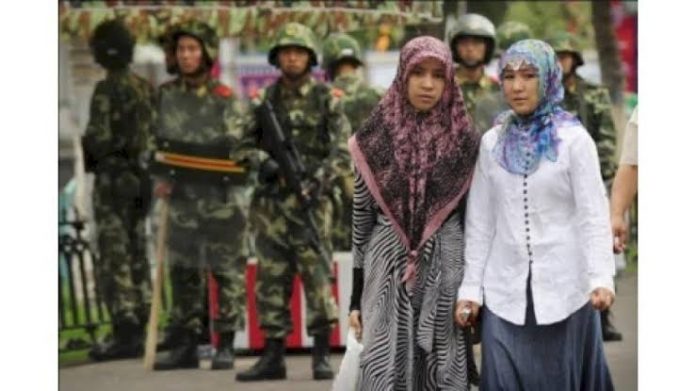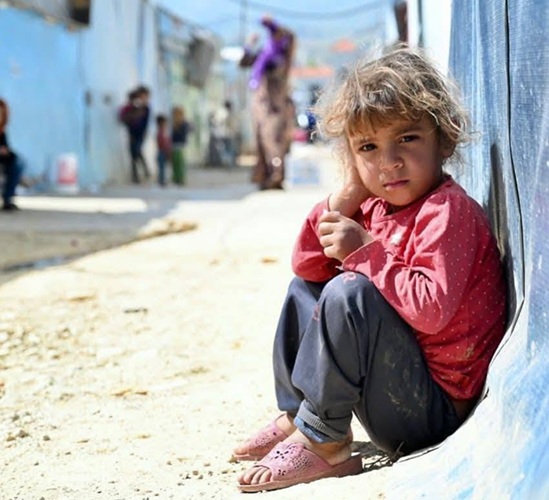New Delhi: The Chinese government’s rights record and its “wolf warrior” diplomacy resulted in increasingly negative public perceptions of the government in some countries abroad, the Human Rights Watch (HRW) said in its World Report 2022.
New research from AidData revealed $385 billion in “hidden debt” owed by developing countries to Chinese authorities. Some foreign governments took more concrete measures to press the Chinese government to improve its rights record, at home and abroad, but those remained inadequate to effectively challenge the scope and scale of Beijing’s abuses, the report said.
Beijing and Hong Kong authorities moved aggressively to roll back rights in Hong Kong.
Pro-democracy activists were arbitrarily arrested and detained. In January, authorities arrested 53 politicians for “subversion” for their involvement in a July 2020 public opinion poll.
The Chinese authorities are committing crimes against humanity against Uyghurs and other Turkic Muslims in Xinjiang.
Abuses committed included mass arbitrary detention, torture, enforced disappearances, mass surveillance, cultural and religious persecution, separation of families, forced returns to China, forced labour, and sexual violence and violations of reproductive rights.
Little news trickled out of Xinjiang in 2021, however, as the authorities maintained tight control over information, and as access to the region, already limited, was further constrained due to Covid-19 movement restrictions.
Some Uyghurs who disappeared into Xinjiang’s abusive “Strike Hard Campaign against Violent Terrorism” were confirmed imprisoned, including prominent academic Rahile Dawut, though her alleged crime, length of sentence, and location of imprisonment remained unclear, the HRW said.
A report by the Uyghur Human Rights Project showed the Xinjiang government dispossessed Uyghurs by confiscating $84.8 million worth of assets from 21 jailed Uyghurs and auctioning the assets online.
Neighbouring governments continued to facilitate Beijing’s abuses. Last September, Kazakh authorities banned a Russian-American researcher, Yevgeniy Bunin, from the country in apparent efforts to stymie his work documenting Xinjiang’s abuses.
Also in the same month, Turkey denied entry to Dolkun Isa, president of the Uyghur exile organisation Uyghur World Congress.
Uyghurs abroad from Afghanistan to Morocco feared deportations to China as the Chinese government continued to seek their return for alleged terrorism, a term vaguely defined under Chinese law that encompasses peaceful expression and advocacy.
Last March, Chinese consumers boycotted international clothing brands for vowing to stop purchasing cotton from Xinjiang due to reports of forced labour. In April, Shenzhen police shut down the Chinese affiliate of a US labour auditing non-profit, Verite.
In July, US photography company Kodak deleted from Instagram a photographer’s post calling Xinjiang “dystopian”. The US Customs and Border Protection agency issued numerous import bans related to Xinjiang, including cotton and tomatoes from Xinjiang, and all downstream products that use Xinjiang cotton and tomatoes manufactured outside the region. There are growing calls for other countries to impose similar bans on Xinjiang imports.
Authorities continued to detain or prosecute people for criticizing the government’s handling of the Covid-19 pandemic. Between January 2020 and June 2021, the Twitter account SpeechFreedomCN recorded at least 663 arrests for Covid-19-related speech. In March, retired professor Chen Zhaozhi was put on trial on charges of “picking quarrels and provoking trouble” for posting on social media, “the Wuhan pneumonia is not a Chinese virus, but Chinese Communist Party virus”.
Authorities harassed, detained, or prosecuted numerous people for their online posts and private chat messages critical of the government, bringing trumped-up charges of “spreading rumours”, “picking quarrels and provoking trouble”, and “insulting the country’s leaders”.
A 2021 Wall Street Journal report found that 58 Chinese users were punished with prison sentences between six months and four years since 2017 for their posts on Twitter, Facebook, and YouTube — all platforms banned in China.
An increasing number of people were punished for speeches deemed “unpatriotic”. In February, at least seven people were detained for comments in relation to the border clash with Indian troops. In March, the government passed a provision stipulating that slandering “heroes and martyrs” could be punished with up to three years in prison. Former journalist Qiu Ziming was sentenced to an eight-month prison term for suggesting the real death toll of Chinese soldiers in the clash was higher than the official figure, the HRW said.
Authorities continued to suppress online content not in line with “core socialist values”. They targeted “misbehaving celebrities” and their online fan groups, and banned some reality shows. In April, censors deleted from WeChat and other websites an article penned by former premier Wen Jiaobao in which he wrote: “China, in my vision, should be a country of justice and fairness.”
Chinese law allows people to practice only five officially recognized religions in officially approved premises, and authorities retain control over personnel appointments, publications, finances, and seminary applications.
Since 2016, when President Xi called for “Sinicization” of religions, which aims to ensure that the Chinese Communist Party is the arbiter of people’s spiritual life, state control over religion has strengthened, the HRW said.






0 Comments